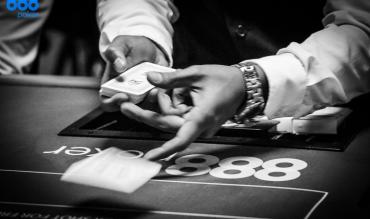Updated on September 29, 2023
In the world of business, where uncertainty and risk are inherent, strategies and decisions play a pivotal role in determining success or failure. Interestingly, the game of poker, with its blend of skill, psychology, and calculated risk-taking, offers valuable lessons that can be applied to the realm of business. Beyond its reputation as a mere card game, poker holds deep insights into strategic thinking, decision-making under uncertainty, and the art of negotiation.
The Parallels Between Poker and Business: Strategic Insights for Success
At first glance, poker and business may seem worlds apart, but a closer examination reveals striking similarities. Both domains involve assessing probabilities, managing resources, and making decisions based on incomplete information. In poker, players make bets and strategize based on their perceived odds of winning a hand, much like business leaders allocate resources based on their assessment of market dynamics. Just as poker players must adjust their strategies in response to opponents, business leaders must adapt to competitors and changing market conditions.
Calculated Risk-Taking: Lessons from Poker for Smarter Business Decisions
Poker is a game of probabilities, psychology, and calculated risk-taking where players make decisions based on their chances of success and weigh potential gains against potential losses. The same principles apply to business, where leaders must navigate risks and evaluate potential outcomes before making a decision. In doing so, they must consider how each decision may impact their bottom line and determine whether the potential rewards of an investment or expansion outweigh the associated risks.
In poker, players use pot odds to calculate whether a call is profitable or not. Similarly, business executives must determine the balance between potential rewards and risks before making a decision. This ability to take calculated risks is what sets successful business leaders apart from the rest. They have the foresight to assess risk and the confidence to make decisions that lead to growth and success.
However, taking calculated risks is not about being reckless or impulsive. It is about taking a measured approach, evaluating all the possible outcomes, and making a decision based on the best available information. It is also about having a backup plan in case things don't go as planned. Business leaders who can take calculated risks, while also being mindful of potential downsides, are more likely to succeed in today's fast-paced and ever-changing business environment.
Resource Allocation and Budgeting: What Poker Teaches Businesses
In both poker and business, the prudent management of resources is of paramount importance. In the game of poker, players are endowed with a finite number of chips, and how they allocate these chips throughout a game significantly impacts their chances of success. Just like poker players do at the tables, businesses operate within budgetary constraints, necessitating judicious distribution of funds across various departments, projects, and initiatives. As such, effective resource management serves as a fundamental pillar for both poker players and businesses alike.
In poker, players quickly learn that reckless betting can lead to losing all their chips, leaving them vulnerable to their opponents. Similarly, in business, frivolous spending or misallocation of funds can put a company's financial stability at risk. Successful poker players strategically decide when to bet conservatively to protect their resources and when to make bold moves to maximize their winnings. Businesses must balance conservative financial management with calculated risks to ensure sustainable growth.
Mastering Decision-Making Under Uncertainty: Business and Poker Strategies
Poker is a game of incomplete information; players only know their own cards and must make decisions based on deductions drawn from their own hands, the community cards, and the behaviour of their opponents. In a similar vein, business leaders often face situations where they lack complete information, such as when entering new markets or introducing innovative products. The ability to make well-informed decisions despite uncertain circumstances is a skill cultivated by poker players and invaluable for business success.

Reading People and Negotiation: Leveraging Poker Skills in Business
Poker is renowned for its psychological element, where players read subtle cues and body language to gain insight into their opponents' intentions. Business negotiations also involve understanding the motivations, needs, and expectations of counterparts. The lessons of poker's "poker face" translate into the importance of effective communication and observation in the business world. Being attuned to nonverbal cues can provide a strategic advantage in negotiations and meetings.
Furthermore, studying their opponents' playing styles and tendencies is part of any successful poker player's study routine. And just like poker players, businesses conduct market research and create customer profiles to tailor their products and marketing strategies effectively.
Emotional Control and Long-Term Thinking: Winning in Poker and Business
Poker demands emotional control and the ability to handle losses without succumbing to frustration. In the world of poker, players often face intense emotional and financial swings. Whether they've just suffered a significant loss or scored a substantial win, maintaining composure is crucial. Emotions like frustration, overconfidence, or fear can lead to hasty decisions, which, in turn, can be detrimental to a player's overall performance.
Successful poker players understand that the game is a marathon, not a sprint, mirroring the long-term perspective needed in business. In both domains, it's essential to avoid making impulsive choices based on short-term outcomes. Losses are part of the game, and setbacks are inevitable in business. However, these losses are not seen as failures but as opportunities for growth and refinement of strategies.
Bluffing and Risk Management: Strategic Maneuvers in Poker and Business
A defining feature of poker is the art of bluffing — convincing opponents that one's hand is stronger or weaker than it actually is. While honesty and transparency are valued in business, there are instances where a strategic "bluff" or calculated risk can lead to favourable outcomes. Launching a new product or entering a competitive market requires an element of surprise and calculated risk-taking, akin to a well-executed poker bluff.
Bluffing is all about convincing opponents of something that is not true. And in business, there are strategic manoeuvres that are sometimes applied, that involve misleading competitors or concealing intentions. And this is what gives them the edge over their adversaries.
Information Management: Lessons from Poker for Business Success
In poker, players manage the information they reveal to opponents, using it strategically to their advantage. In the business world, the dissemination of information can influence stock prices, investor sentiment, and public perception. Careful information management can enhance a company's competitive position and reputation. Just as a poker player withholds certain details to create uncertainty for opponents, businesses must be strategic in sharing information to maintain a competitive edge.

Adaptation and Flexibility: Thriving in Poker and Business Environments
Poker players must constantly adjust their strategies based on changing circumstances—the flow of cards, opponents' actions, and the evolving dynamics of the game. This adaptability directly translates to the business environment. A successful business must be agile, and able to pivot in response to market shifts, technological advancements, and unforeseen challenges. The ability to change course without losing sight of long-term objectives is a shared principle between poker and business.
Innovation and creative thinking are abilities that will be rewarded both at the poker table and in business. You'll constantly need to find unique solutions to challenges or create novel strategies to keep yourself on top. Poker players often discuss how they played specific hands and seek feedback from others to improve and that's how they keep winning. Businesses can benefit from a culture of feedback and adaptation, in order to improve strategies and the way they operate continuously.
Learning from Losses: Turning Setbacks into Opportunities in Poker and Business
In poker, as in business, losses are inevitable. What sets skilled players and successful business leaders apart is their capacity to learn from losses and mistakes. Analyzing hands that didn't go as planned and identifying where decisions could have been improved is akin to conducting post-mortems on business projects. Viewing losses as opportunities for growth and refinement is a shared mindset between the poker table and the boardroom.
The Role of Probabilities and Expected Value in Poker and Business Strategies
Central to poker strategy is understanding probabilities and expected value—the potential long-term gains or losses of a decision. Business leaders also rely on these concepts when making investment decisions, launching products, or entering partnerships. By analyzing potential outcomes and assigning probabilities to different scenarios, both poker players and business executives make informed choices that maximize their chances of success.
Conclusion: Applying Poker Strategies to Succeed in Business
Poker's influence on business is more than a mere analogy; it's a source of tangible lessons that can elevate strategic thinking, decision-making, and adaptability. The parallels between poker and business extend beyond the surface-level similarities, delving into the psychology of decision-making, the management of risk, and the art of negotiation. As the worlds of poker and business continue to intersect, the wisdom garnered from the card table can enhance the effectiveness of business leaders navigating the complexities of today's competitive landscape. Just as a skilled poker player thrives at the table, adept business leaders leverage these lessons to succeed in the dynamic arena of commerce.
Originally Published on August 20, 2023


